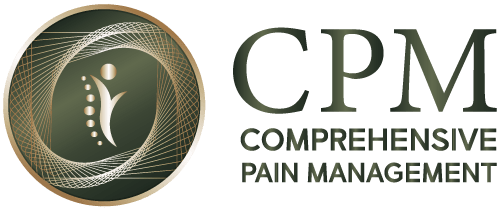8841 East Bell Road, Suite 101, Scottsdale, AZ 85260 | Rate: ★★★★★
Non-Surgical Rotator Cuff Tear Treatment Phoenix
If you are thinking about a rotator cuff tear and treatment, you’re already thinking of bone health. But shoulder pain from a rotator cuff tear also needs expert care. For rotator cuff tear treatment Phoenix, our clinic offers focused diagnosis and advanced non-surgical options when possible. We help you reduce pain, regain motion, and protect joint health.
What is a Rotator Cuff Tear?
A rotator cuff tear happens when one of the muscles or tendons around your shoulder joint gets damaged or torn. This leads to pain and weakness when you lift or move your arm. Rotator cuff tear treatment Phoenix often begins with finding the exact location and size of the tear to guide care.
Rotator Cuff Tear Symptoms
Many signs point to the rotator cuff tear treatment Phoenix needs. Symptoms include:
- Pain when lifting your arm or reaching overhead
- Weakness in the shoulder or arm
- A dull ache or sharp pain at rest or at night
- Trouble doing daily tasks like combing hair or reaching back
Common Rotator Cuff Tear Treatment Phoenix
At Comprehensive Pain Management, rotator cuff tear treatment Phoenix begins with a full exam. We check your shoulder strength, range of motion, and review your health history. Imaging, like ultrasound or MRI, helps us confirm the tear and decide on the best care plan.
For many patients, non-surgical treatments work well. We focus on advanced injections that reduce pain and help with healing:
Stem Cell Injections
This treatment uses cells taken from your own body to support healing in the torn tendon. The injection is placed directly into the injured area. It may help the tissue repair itself and reduce long-term damage.
Platelet-Rich Plasma (PRP)
PRP is made from your own blood. It contains healing proteins that support tendon repair. The PRP is injected into the torn area to reduce pain and improve strength over time.
Cortisone Injections
These are anti-inflammatory shots given into the shoulder joint or near the tear. They help relieve pain and swelling so you can move your arm more easily.
All injections are done with care and precision. In some cases, we may use ultrasound guidance to make sure the medicine reaches the right spot. These options are key parts of non-surgical rotator cuff tear treatment Phoenix, helping patients heal without going through surgery.
Rotator Cuff Tear Causes
- A sudden injury, like falling on your arm
- Repeating overhead motions (in sports or work)
- Age-related wear and tear on tendons
- Poor shoulder mechanics or muscle imbalance
How is a Rotator Cuff Tear Diagnosed?
We diagnose rotator cuff tears using a physical exam to test range and strength, plus imaging. We may order an ultrasound or MRI to see the tear clearly and plan your rotator cuff tear treatment Phoenix.
Rotator Cuff Tear Treatment Phoenix Near Me
If shoulder pain keeps you from activities or work, trust Comprehensive Pain Management for rotator cuff tear treatment Phoenix. We offer expert assessment, guided therapy, and image-guided injections when needed. Getting the right diagnosis is key to your recovery. Contact us to start your care plan and restore shoulder strength and motion.
FAQs about Non-Surgical Rotator Cuff Tear Treatment Phoenix
Is physical therapy treatment for rotator cuff tears effective?
Yes. Therapy strengthens shoulder muscles and improves the range of motion without surgery.
How much does it cost to fix a torn rotator cuff?
Costs vary by treatment type. Please contact Comprehensive Pain Management for details.
What is the most effective treatment for rotator cuff tears?
A mix of therapy, image-guided injections, and lifestyle support often delivers the best results.
Can you fix a torn rotator cuff with therapy?
Small or partial tears often improve with guided therapy and non-invasive care.
How is a rotator cuff tear treated?
Treatment may include therapy, injections, and, in some cases, surgery if needed.
How is the recovery from rotator cuff surgery?
Recovery often includes rehab, a gradual return to motion, and months of guided care to regain strength.
Dr. James KellerShabrokh
Dr. James KellerShabrokh is a board-certified specialist in Physical Medicine and Rehabilitation, focusing on spine, joint, muscle, and nerve injuries. He combines rehabilitative care, minimally invasive procedures, and preventive strategies to restore function, improve mobility, and provide long-term pain relief.
